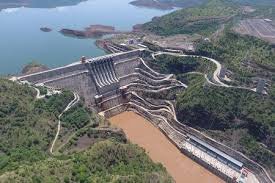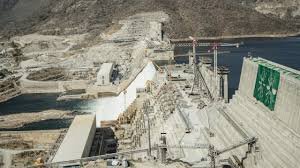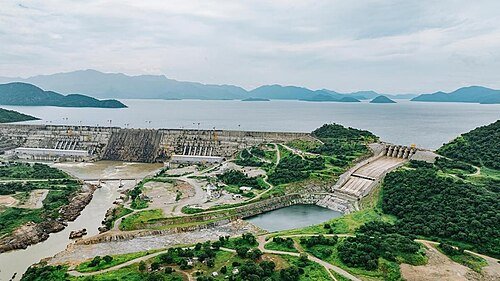Ethiopia’s Prime Minister Abiy Ahmed has announced that the multibillion-dollar mega dam on the Blue Nile, which has caused deep consternation to downstream neighbours Egypt and Sudan over its effect on their water supply, is complete and will be officially inaugurated in September.
Of that regional concern over the Grand Ethiopian Renaissance Dam (GERD), Abiy said on Thursday in an address to parliament: “To our neighbours downstream – Egypt and Sudan – our message is clear: the Renaissance Dam is not a threat, but a shared opportunity … The energy and development it will generate stand to uplift not just Ethiopia.”

Launched in 2011 with a $4bn (£2.9bn) budget, the dam is Africa’s biggest hydro-electric plant, and a major source of pride for Ethiopians.
Ethiopia sees the dam as vital to meeting its energy needs but Egypt and Sudan see it as threatening their water supply from the Nile. The dam, located on the Blue Nile, a major tributary of the Nile River, is vital for Ethiopia’s electrification programme.
In a statement announcing the completion of the project, Prime Minister Abiy Ahmed sought to reassure his neighbours. “To our neighbours downstream – Egypt and Sudan – our message is clear: the Renaissance Dam is not a threat, but a shared opportunity,” he said.
Egypt and Sudan have expressed concerns about GERD’s operation, fearing it could threaten their access to vital Nile waters. Negotiations to reach a three-way agreement with Ethiopia have failed to make a breakthrough. Egypt, which is already suffering from severe water scarcity, sees the dam as an existential threat, as the country relies on the Nile for 97 percent of its water needs.
The GERD is considered Africa’s largest hydroelectric project, stretching 1.8km (about one mile) wide and 145 metres (475ft) high.
US President Donald Trump said in 2020 that Egypt had threatened to “blow up” the dam – officially known as the Grand Ethiopian Renaissance Dam (GERD).
In a conciliatory move, Abiy said that both Egypt and Sudan would be invited to its official inauguration in September. “We believe in shared progress, shared energy, and shared water,” he said.
Egypt’s President Abdel Fattah al-Sisi and Sudan’s military chief Abdel Fattah al-Burhan met earlier this week and “stressed their rejection of any unilateral measures in the Blue Nile Basin”, AFP news agency reports.
More than a mile long and 145m high, the dam is on the Blue Nile tributary in the northern Ethiopia highlands, from where 85% of the Nile’s waters flow.
Ethiopia wants the dam to produce desperately needed electricity, as the majority of its population – about 60% – have no supply. Egypt relies on the River Nile for nearly all of its fresh water, and fears that the flow of water could be disrupted. It has argued that just a 2% reduction in the amount of water it gets from the Nile could result in the loss of 200,000 acres of irrigated land.

Sudan is also heavily reliant on water from the Nile, and shares Egypt’s concerns.
Abiy said Ethiopia was “willing to engage constructively” with the two countries. However, previous talks have failed to resolve differences.
Ethiopia first began generating electricity at the project, located in the northwest of the country, about 30km (20 miles) from the border with Sudan, in February 2022.
At full capacity, the huge dam can hold as much as 74 billion cubic metres (2,590 cubic feet) of water and could generate more than 5,000 megawatts of power – more than double Ethiopia’s current output.
The east African nation is the second most populous on the continent, with a rapidly growing population estimated at 130 million, and has growing electricity needs. About half of its people live without electricity, according to estimates released this year by the World Bank.
Earlier this week, Egyptian President Abdel Fattah el-Sisi and Sudan’s leader Abdel Fattah al-Burhan met and “stressed their rejection of any unilateral measures in the Blue Nile Basin”.
According to a statement by Sisi’s spokesman, the two are committed to “safeguard water security” in the region.
But Abiy said Ethiopia is “willing to engage constructively”, adding that the project will “not come at the expense” of either Egypt or Sudan.
“We believe in shared progress, shared energy, and shared water,” he said. “Prosperity for one should mean prosperity for all.”
Additional Source: Aljazeera




